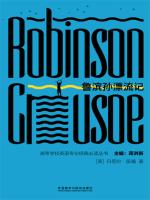An unyielding person
It is said that the social class which embodies the spirit of British Puritanism is termed as British merchant class. Daniel Defoe who is a member of the merchant class does not believe in the Church of England. Instead, he holds views close to those of a Puritan. His first work received pillory punishment in public for its satirical content on the then administration. However, this did not stop him from criticizing religious oppression. In 1719, Defoe wrote a novel entitled Robinson Crusoe which instantly swept the whole of Great British upon publication. In the novel of Robinson Crusoe, Robinson is a Christian who challenges the Catholic Church. He shows a deep appreciation for the words in Bible which are useful to him. He challenges God’s authority from time to time while he is a laborious worker full of energy. In this essay, it is mainly to analyze the advantages and disadvantages of Robinson's characteristics at that period of time. The advantage part will be analyzed from four perspectives, namely, Robinson as a man of virtue, individualism, perseverance, and reason. However, in the disadvantaged part, his lacking care for the family, vanity, racial prejudice, and keeping slaves will be criticized.
It can not be denied that Robinson is a hero in many people's minds. This is not only because of his bravery, moreover, but he is also a man of virtue at first. Robinson is kind-hearted. For this point, he has won people’s concern, respect, and best wishes. He is also gracious and merciful. Furthermore, his charitable deeds to his benefactors made him a more shining figure: the first thing after he had become a rich man was to recompense his original benefactor who had been kind to him at the beginning of his adventure. In addition, Robinson is a modest man. He was never interested in portraying himself as a hero in his narration. He didn’t boast of his courage in settling down, working, exploiting, and quelling on the island alone, and he was always ready to admit his feelings of fear or panic.
Secondly, he is a man of individualism. He is typical of the English bourgeoisie. He pursued a free life and valued individualism in his middle age. Robinson was not willing to stick to the old doctrines and lived a life of leisure and ease. His restless nature made him always fight for a better life and the things he wanted to possess.
Thirdly, he is a man of perseverance. Robinson had shown his marvelous capacity for work, his boundless energy, and his persistence in overcoming obstacles. His perseverance in spending months making a canoe, and in practicing pottery making until he got it right, is praiseworthy. He struggled hard against nature and made it bend to his will.
Last but not the least, he is a man of reason. This is alone with the development of people's minds and scientific research. The fact that Robinson could go out to sea and build his plantation in Brazil is because of the development of navigation techniques and ship-making. When facing difficulties, Robinson did not always pray for God’s blessing but used his wisdom and tools to fight against all the obstacles and created a necessary and comfortable life for himself. In the production procedure, he experienced collecting, fishing, hunting, raising animals, and making some tools and necessaries to life, in which he made full use of his knowledge and was willing to learn more.
The second part of this essay is about the pitfalls of Robinson's characteristics. Firstly, he is a man without plenty of care to his family. As he told us, “I would be satisfied with nothing but go to sea, and my inclination to this led me strongly against the will and the commands of my father, and against all the entreaties and persuasion of my mother and other friends. In the end, he went out to the sea without saying goodbye to his family. Secondly, he is vainglory. After the first sea voyage failed, he was swaying between two choices: whether he should go home, or go to sea. He chose the latter. Though he had ever considered returning home, it is the sense of vanity that accounts for this decision, as illustrated in “it occurred to me how I should be laughed at among the neighbors and should be ashamed to see, not my father and mother only, but even everybody else”. On this point, I don’t agree with Robinson, for he is too strongly affected by vanity. Thirdly, it is claimed that he is racially prejudiced. In his deep mind, he divided human beings into the Europeans who were civilized, and the others savages. Lastly, Due to Robinson’s bourgeoisie character, he would do something that a typical bourgeoisie would do. For example, he supported slavery and thought it was a profitable trade.
In a word, Robinson's characteristics are the production of that complicated society at that period of time. Reading or thinking his behavior, it is sensible to bear in mind the features of that time.



 京公网安备 11010802032529号
京公网安备 11010802032529号